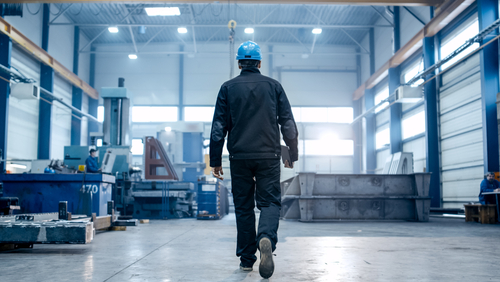Seventy-five percent of U.S. facility managers say COVID-19 has caused them to permanently rethink how their facility operates, according to survey findings released by Honeywell. The report also says nearly 6 in 10 respondents are more likely to invest in indoor air quality optimization and other healthy building solutions, while 7 in 10 are now more willing to invest in smart building solutions that help drive efficiency and support sustainability efforts.

Honeywell says the report, “Rethinking Buildings Post-COVID-19,” is the first in the tech company’s 2021 Building Trends series and introduces the challenges, priorities, and assessments of surveyed facility managers in the United States, Germany, China, and Saudi Arabia across the education, healthcare, data center, and commercial real estate industries. It focuses on COVID-19’s impact on building trends and facility managers’ priorities—now and in the future.
“A notable transformation driven by the COVID-19 pandemic is prompting U.S. facility leaders to reconsider their operational strategies and invest in smarter, healthier technologies,” says Vimal Kapur, president and CEO of Honeywell Building Technologies.
“As occupants become more aware of how the buildings they use for work, school, and care can affect their well-being, we expect them to push building owners and operators to implement new procedures with efficient, sustainable solutions that better support occupants’ safety [and] comfort and enhance their experiences, not only for the immediate return to office but for the long term as well.”
According to Honeywell, the survey results from facility managers in the U.S. underscore five key themes:
1. The pandemic will likely have a lasting impact on facility management and operations.
The study says three-quarters (75%) of surveyed U.S. facility managers indicate COVID-19 has prompted their facility to rethink its modes of operation. Many believe changes and upgrades made during the pandemic will be kept in place in some form; yet only 36% of those surveyed expect updates to the air quality system to remain permanent. COVID-19 is also driving facility managers to adjust their priorities and investments. For example, the study says 62% are more likely to invest in indoor air quality optimization and other healthy building solutions, and 56% are more willing to invest in occupant experience solutions like contactless building access, smart parking, and personalized experiences.
2. COVID-19 remains a source of widespread unease.
Among surveyed U.S. facility managers, nearly 1 in 4 (22%) mention pandemic-related issues as their top concern.
3. A healthy building is a top priority and will remain important.
The report says a majority (58%) of respondents consider having a healthy building a top priority right now, and 62% say it will continue to be a top priority post-pandemic. Improving indoor air quality ranks as the most important aspect of a healthy building for those working in healthcare and educational facilities, while those working in data centers and commercial real estate buildings cite cleaning procedures as their top priority.
4. Digital transformation of facilities is accelerating.
Since COVID-19, more than half (54%) of respondents have seen digital transformation accelerate in pace as the need for remote facility management became more acute. More than 9 in 10 facility managers (93%) say that remote facility management is important now, and 67% of respondents indicate they are more willing to invest in smart building solutions that drive efficiency or sustainability, including data aggregation, machine learning, and artificial intelligence.
5. Respondents are interested in upgrades to improve the occupant experience, with a contactless building experience ranking high.
According to the surveyed U.S. facility managers, there is strong interest in upgrades such as improving indoor air quality, energy efficiency, and sustainability efforts, and supporting an inviting and innovative building environment. Yet respondent input shows a gap in the technologies currently deployed in buildings. More than half of those surveyed say the buildings they manage do not have air quality solutions (57%), integrated lighting that improves occupant productivity (66%), contactless building entry (67%), or an app that provides real-time information on building health (73%).
The full Honeywell report, whose survey was conducted by KRC Research, is available here.
